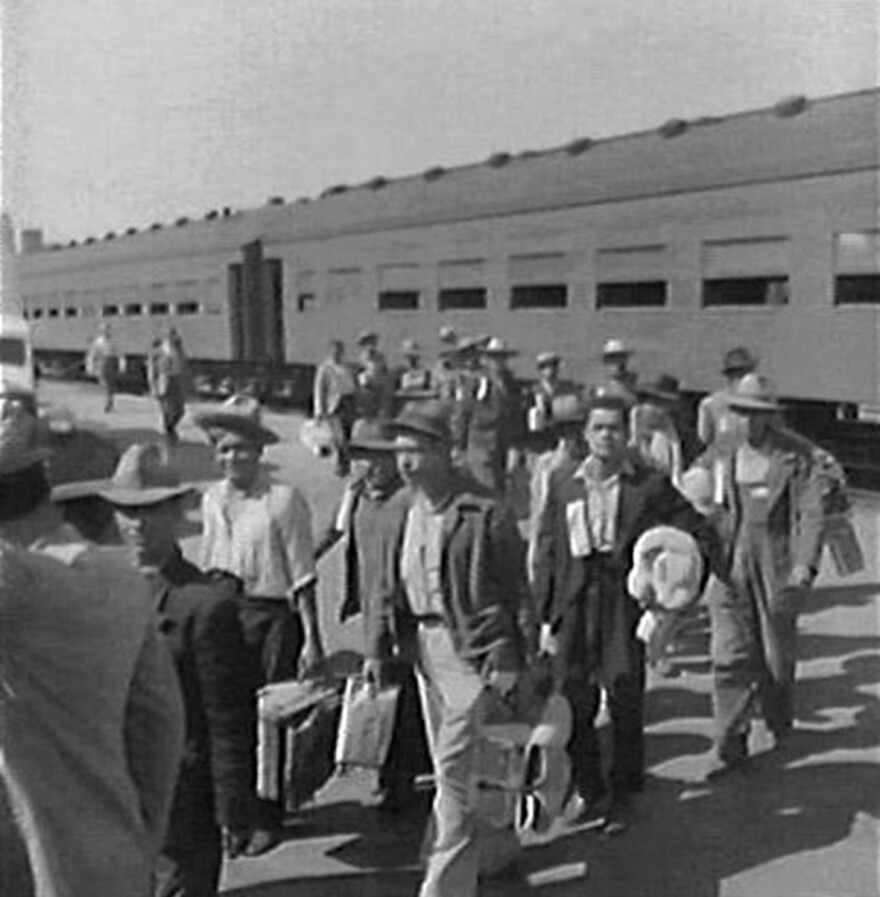Hi, I am Marco Macias, a history teacher here at Fort Hays State University. Thank you for tuning in, and welcome to a BookByte of The Line Becomes a River: Dispatches from the Border, a fascinating narrative from Francisco Cantu. In the book, he describes his experiences growing up on the border and then pursuing a career in border patrol for several years. Traversing through the desert, he learns to understand the inhumanity of forcing immigrants across the desert and returns to civilian life. Afterward, he discovers the particularities of family separation as an undocumented friend visits his dying mother and can’t come back after decades of living in the United States.
The main strength of Cantu’s story is his ability to humanize his experiences within Border Patrol and those of the undocumented immigrants that try to cross from Mexico daily. Living on the border is not the same as being on the boundary, and Cantu masterfully demonstrates this by exploring the nuances of the star-full nights and the immigrants they either find dead or alive in the lonely desert landscape.
This is a must-read for anyone who has ever wondered how life flourishes along the U.S.-Mexican border. Growing up and living in Arizona myself, I can attest to the extreme conditions that immigrants are put through in order to pursue their American Dream. I have walked the deserts, carrying water for those in need, and can attest to the fears of finding someone wandering after being left behind. Crossing the border as an undocumented human being is not a straightforward policy issue.
Time and time again, when reading the story, I found myself identified with the contradictions and distinctions related by Cantu. For many, the border crossed them, and not the other way around. And in this regard, culturally, the southwest is an extension of Latin America, a region with a rich history rooted in Hispanic and indigenous roots. This is why one can relate to an immigrants’ resilience and desperation; clearly illustrated towards the end when Cantu’s friend says:
“I’ll eat grass, I’ll eat bushes, I’ll eat cactus, I’ll drink filthy cattle water, I’ll drink nothing at all. I’ll run and hide from la migra, I’ll pay the mafias whatever I have to. They can take my money, they can rob my family, they can lock me away, but I will keep coming back. I will keep crossing, again, and again, until I make it, until I am together again with my family.”
For those that have traversed the borders of another country in search of a better opportunity, these words are forever impactful. We are an immigrant nation that currently does not have a path for many hard-working individuals and their families contributing to the United States’ greatness. This is why the border is alive, much like a river because it can change its course much as immigration laws have changed in the past century.
From welcoming Mexicans during the Bracero program of the 1940s to the dehumanization of family separation, Cantu’s narrative is as much relevant today as it was when it came out in 2018. Being from the borderlands brings a unique perspective, but Cantu captures its essence and transmits it here, and this is why this book is truly an exceptional jewel.
Thank you for joining, and I also hope you enjoy reading this book when you have an opportunity.









